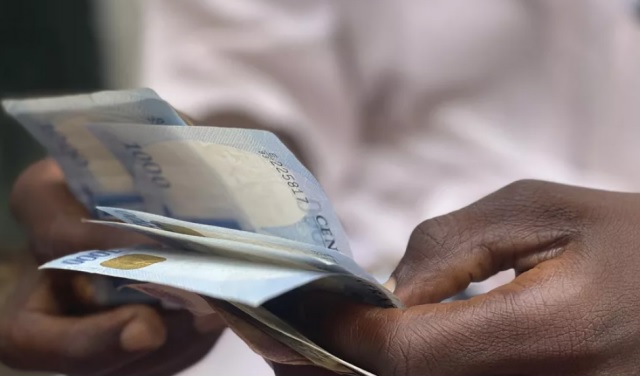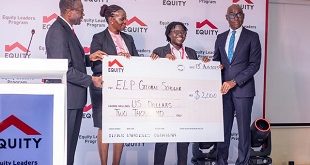
African finance experts at COP29 want that wealth measured in new ways
ANALYSIS | THE INDEPENDENT | Akinwumi Adesina, the president of the African Development Bank (AfDB) has stirred up new thinking around financing for the continent at the COP29 by insisting on a revaluation of its green wealth.
Adesina on Nov.14 addressed a meeting on the sidelines of the UN World Leaders’ Climate Action Summit of the 29th Conference of the Parties (COP 29) in the Azerbaijan capital Baku. The session attended by political leaders, policy makers, and climate activists was on `Measuring the Wealth of Nations: Natural Capital and Economic Productivity in Africa’.
The leaders on Nov. 13 held a High-Level Presidential Meeting on the theme “Measuring The Green Wealth of Africa” where Adesina first released the AfDB report to African Heads of State and Government.
According to the AfDB, proper valuation of Africa’s green wealth is critical for accurately assessing the real wealth of each country to support better investment strategies and financial flows. Anticipated benefits include enhanced access to green bond markets and credit ratings, allowing African countries to secure financing for climate-resilient infrastructure and other productive investments.
“It is time for Africa’s green environmental assets to be properly priced to allow the continent to turn its massive green assets into wealth, through their inclusion in “green’ GDP for Africa,” Adesina said.
According to Adesina, proper pricing of Africa’s green environmental assets will cause positive international financial policy shifts, open up massive financial resources for the continent, and lead to greater green investments.
“It is time for Africa to be green rich and cash rich,” he said.
Africa’s $6.2 trillion wealth
Adesina said Africa’s undervalued wealth includes 65% of the world’s uncultivated arable land, 25% of the world’s tropical rain forests, and 20% of global biodiversity.
Africa holds significant natural capital crucial for sustainable development, including vast clean energy potential, arable land, marine resources, and the world’s second-largest and longest rivers, the Congo and the Nile.
The continent is home to immense biodiversity, tropical rainforests, and considerable renewable natural resources, such as minerals, oil, gas, and coal. In 2018, Africa’s measured natural capital was estimated at $ 6.2 trillion.
These natural resources provide essential environmental services to the world, such as carbon sequestration, pollution control, and retention of soil fertility, which sustain human existence.
For example, the Congo Basin is one of the world’s last regions that absorbs more carbon than it emits. Dubbed the second ‘lung’ of the world after the Amazon Rainforest, the Congo Basin is home to the world’s largest tropical peatlands along with Brazil and Indonesia, and its peat swamp forest stores around 29 billion tons of carbon -equivalent to approximately 3 years’ worth of global greenhouse gas emissions – while the Basin absorbs nearly 1.5 billion tons of carbon dioxide a year.
“This vast natural capital is not taken into consideration when valuing the GDP of African countries,” he said,” While Africa contributes significantly to global public good by tackling climate change with its vast resources of natural capital, its natural capital has been undervalued.”
Africa’s proposals
Adesina’s Green Wealth was one of several proposal presented by African experts on the sidelines of the COP29 for financing Africa’s climate change adaptation agenda.
Others were a bond listing on the London Stock Exchange to boost climate finance for Africa announced by the Climate Investment Funds Capital Markets Mechanism (CCMM) which has over the last 16 years raised private sector capital in the international capital markets. The money is used to finance climate action and sustainable development.
Adesina said at a time of declining levels of concessional financing and grants, new models are needed to secure larger climate finance for developing countries, for public and private sector.
“The CCMM marks the first time that a multilateral climate fund will use the strength of its balance sheet to unlock urgently needed climate finance.”
Meanwhile, Kevin Kariuki, the AfDB vice president for power, energy, climate and green growth announced that Africa needs to mobilise at least $4bn annually to achieve universal access to clean cooking by 2030.
Kariuki was backing a call by Tanzania’s vice president Philip Mpango to end the suffering of the over 83% of people in Sub-Saharan Africa who rely on traditional biomass fuels, leading to severe health, environmental, and economic repercussions.
This reliance on polluting fuels costs approximately $791.4bn annually, with health-related impacts accounting for $526.3bn. Policymakers highlighted the urgent crisis posed by lack of access to clean cooking, a challenge impacting 1.2 billion people across Africa and leading to millions of premature deaths annually.
“It is unacceptable that women are still dying because they lack access to clean cooking solutions,” Mpango said.
“We cannot allow our sisters and mothers to suffer in silence while we have the power to change this,” Kariuki said.
Also, at the Cop29 Africa Day at the African Union’s Pavilion, the climate concerns of Africa were addressed under the theme “Scaling up Financing for Climate Adaptation and Green Growth in Africa.”
Claver Gatete, executive secretary of United Nations Economic Commission for Africa (UNECA) told the meeting that Africa needs at least US$1.3 billion per year from richer countries of the world to finance climate change resilience, protect diversity, and foster climate-responsive development.
“Available financing continues to fall short and our public finances must be complemented by private funds,” he said. He said what he called a “New Collective Quantified Goal” needs to be established to mirror an agreed level of finance delivered by richer world countries to meet Africa’s “real needs”.
There was also further discussion of the Loss and Damage Fund which was one of the main initiatives to emerge from Cop28 in the UAE last year. This fund is designed to compensate poorer nations for the damage to them caused by climate change.
Benedict Oramah, president of Afreximbank said the issue of financing climate adaptation in Africa and the island states of the Caribbean has become an emergency and as such our participation at COP29 is an opportunity to advocate for Africa and the Caribbean’s climate priorities, amplify their voice in global Oramah said the Bank will advocate for a scaling up of the new collective quantified goal on climate finance (NCQG) to replace existing “insufficient” mechanisms.
Building on the past
Adesina’s AfDB’s report builds on the African Leaders’ Nairobi Declaration on Climate Change and Call to Action and the recommendations from the 37th Ordinary Session of the African Union in February 2024, which emphasized the need to “green” GDP by incorporating the value of natural capital and associated ecosystem services.
It wants financing institutions to unlock new sources of wealth for the continent based on a revaluation of Africa’s Gross Domestic Product (GDP) which properly accounts for its abundant natural capital and ecosystem services, including its extensive carbon-sequestering forests.
Prof. Kevin Chika Urama, Chief Economist and Vice-President of the AfDB Group spoke at the event which featured a panel discussion by Prof. Jeffrey Sachs, Director of the Center for Sustainable Development, Columbia University, United States, Dr. Claudine Uwera, Senior Strategic Advisor, Office of the Prime Minister, Rwanda, Dr. Anthony Simpasa, Director, Macroeconomic Policy, Forecasting and Research Department, African Development Bank Group, Prof. Gunnar Kohlin, Associate Professor and Director, Environment for Development Initiative University of Gothenburg, and Prof. Pushpam Kumar, Chief Environmental Economist, UNEP. It was moderated by Dr. Victor Oladokun, Senior Advisor to Adesina for Communication and Stakeholder Engagement at the AfDB Group.
The event was held under the auspices of Denis Sassou Nguesso, President of the Republic of Congo and William Ruto, President of Kenya and Chairperson of the African Union Committee of Heads of States on Climate Change.
 The Independent Uganda: You get the Truth we Pay the Price
The Independent Uganda: You get the Truth we Pay the Price



